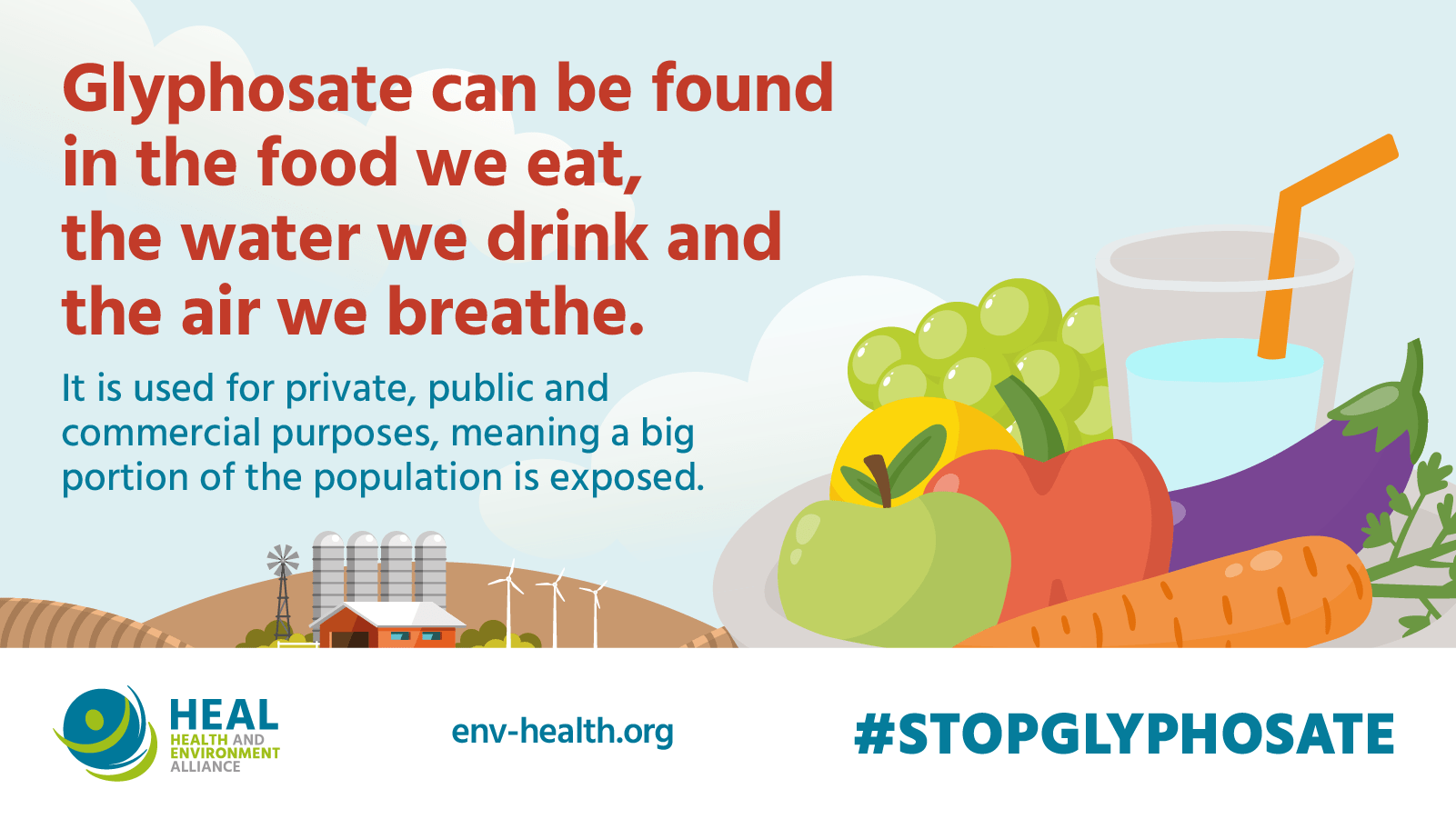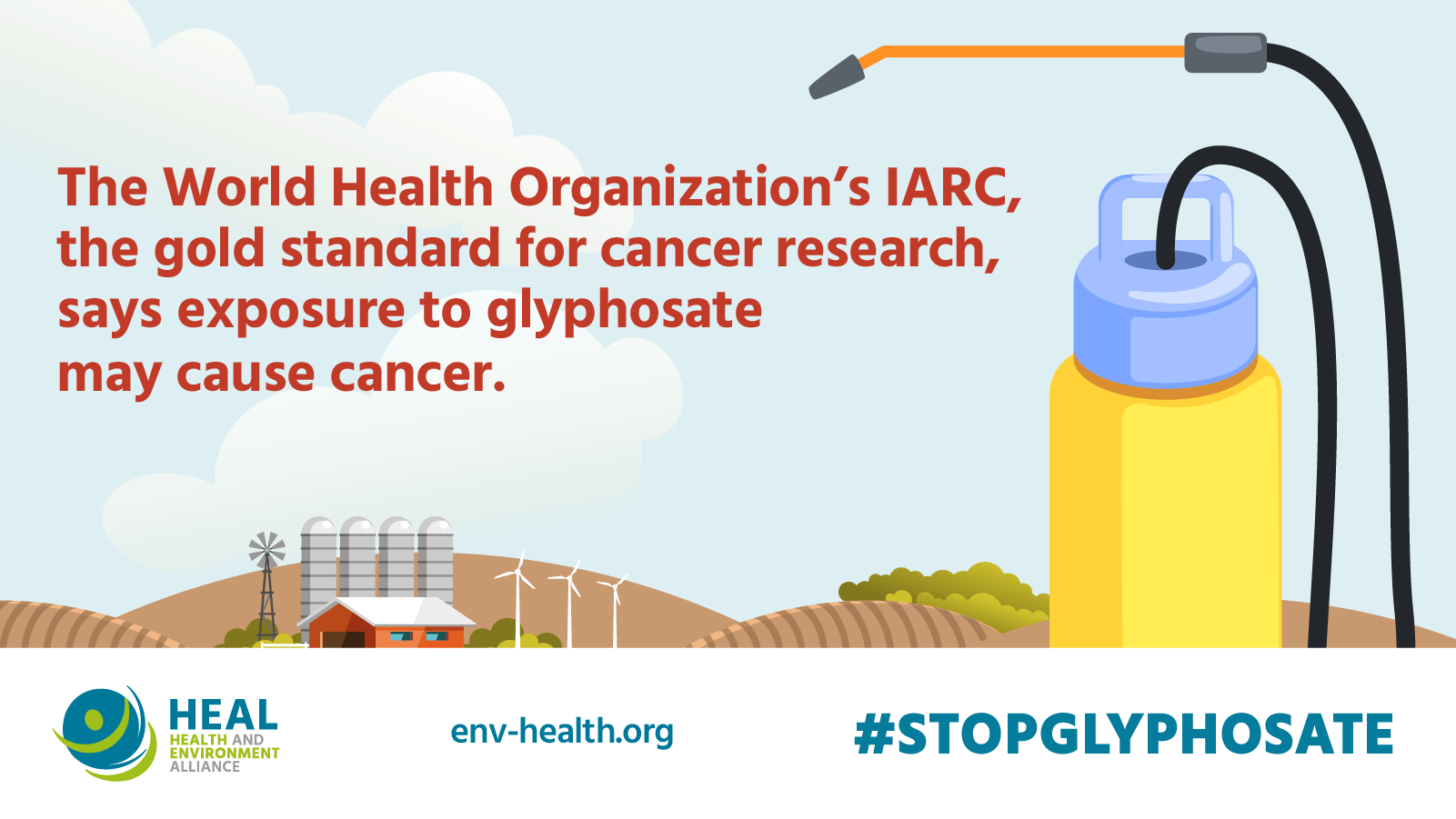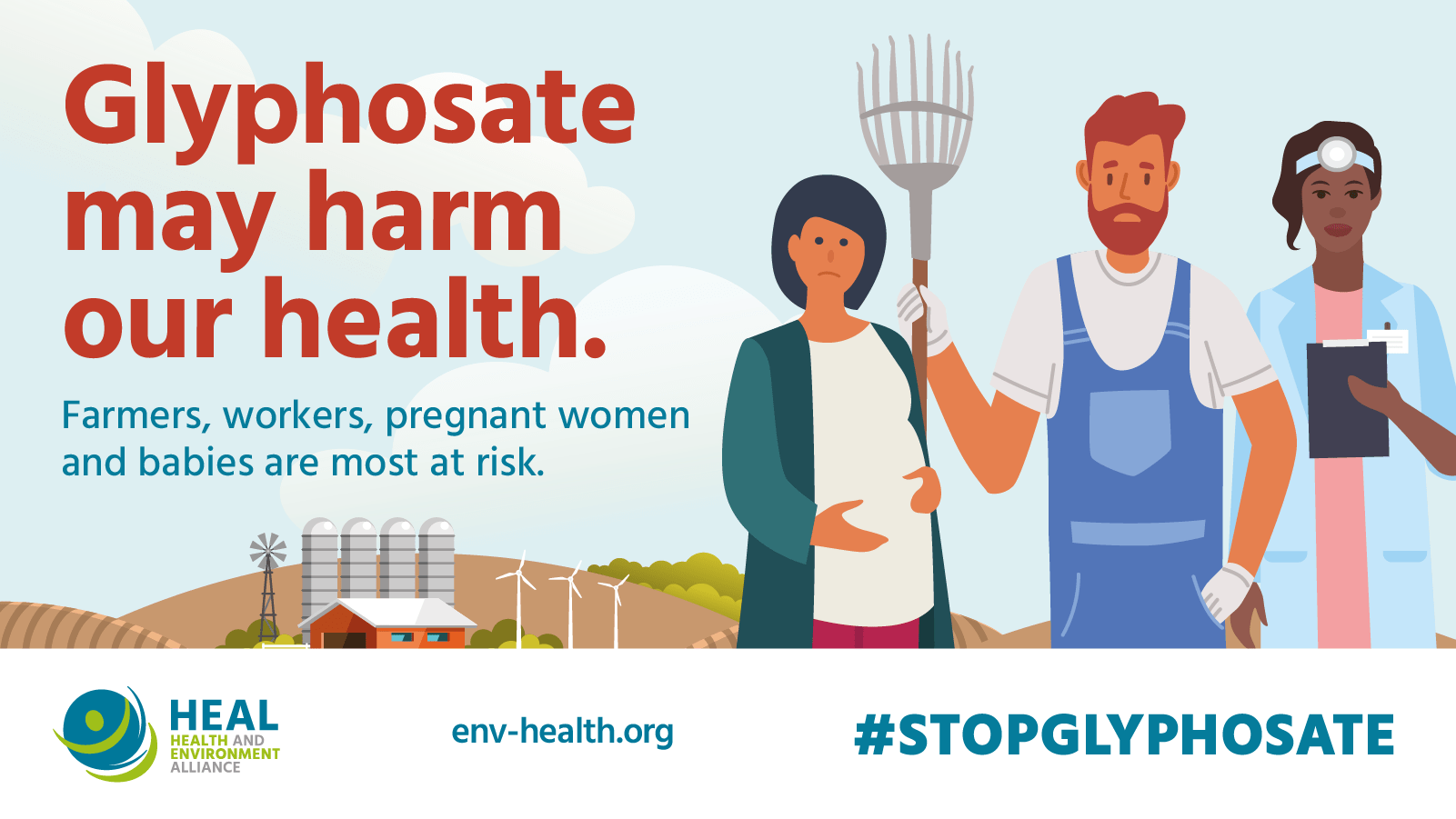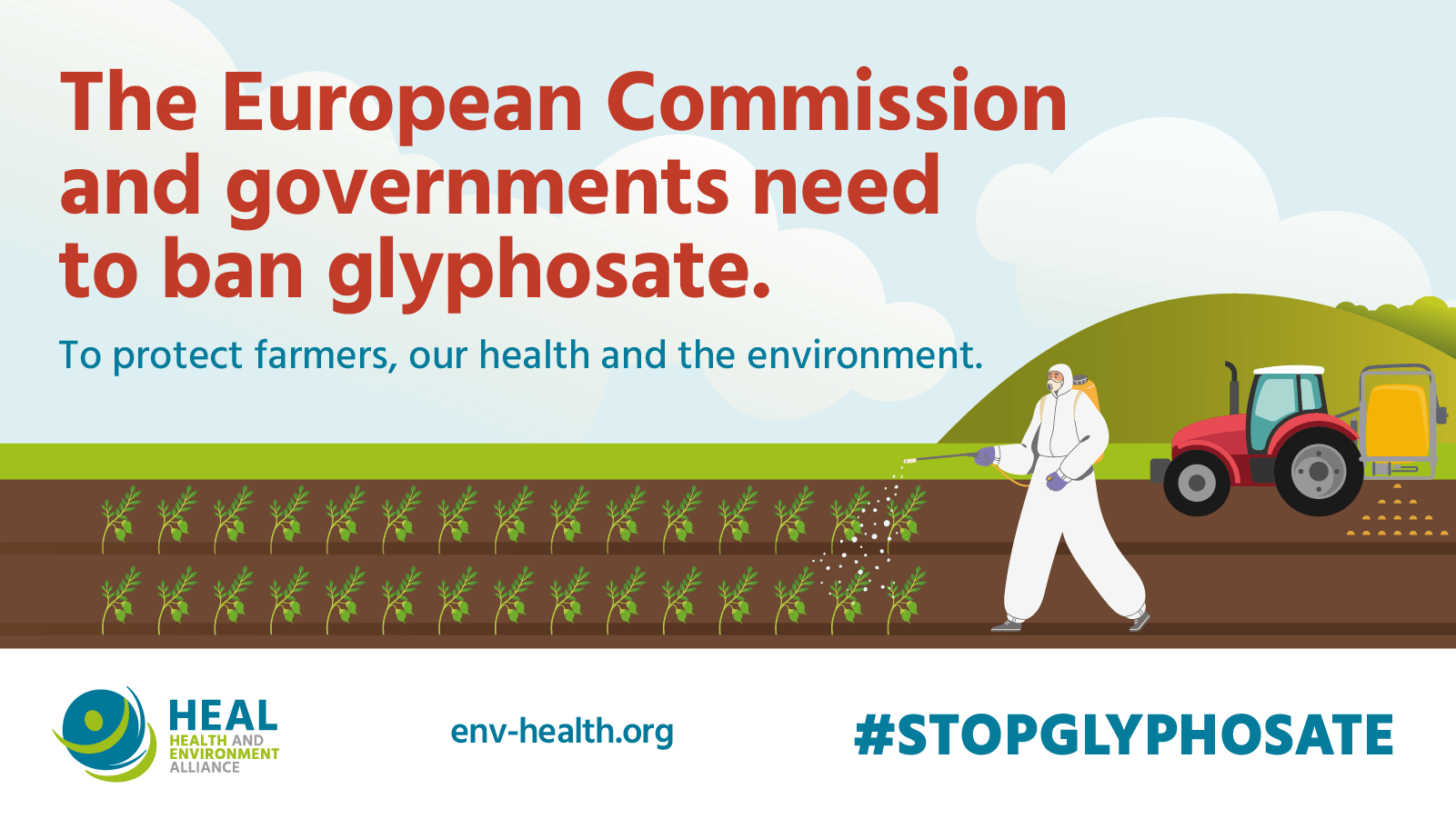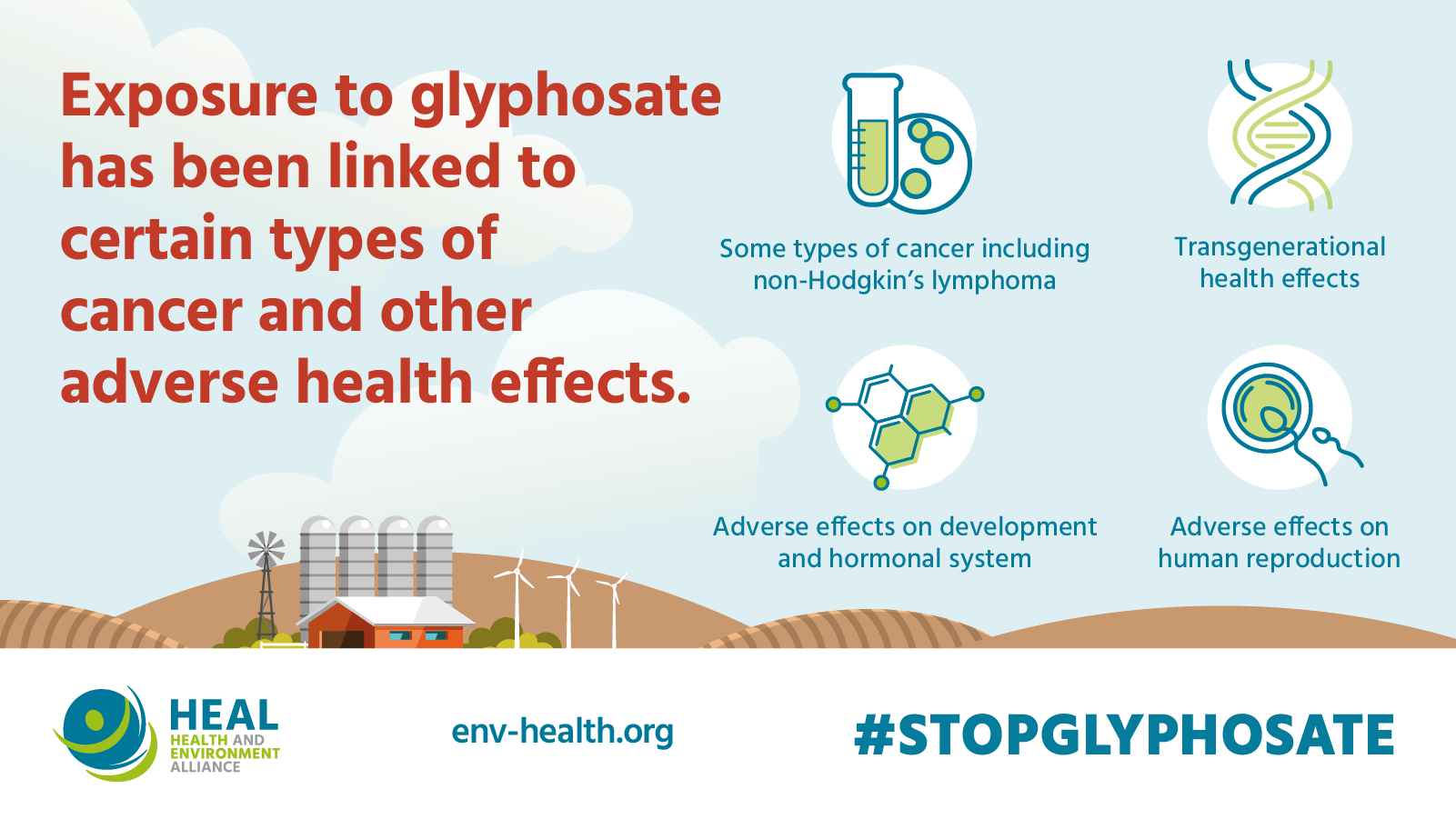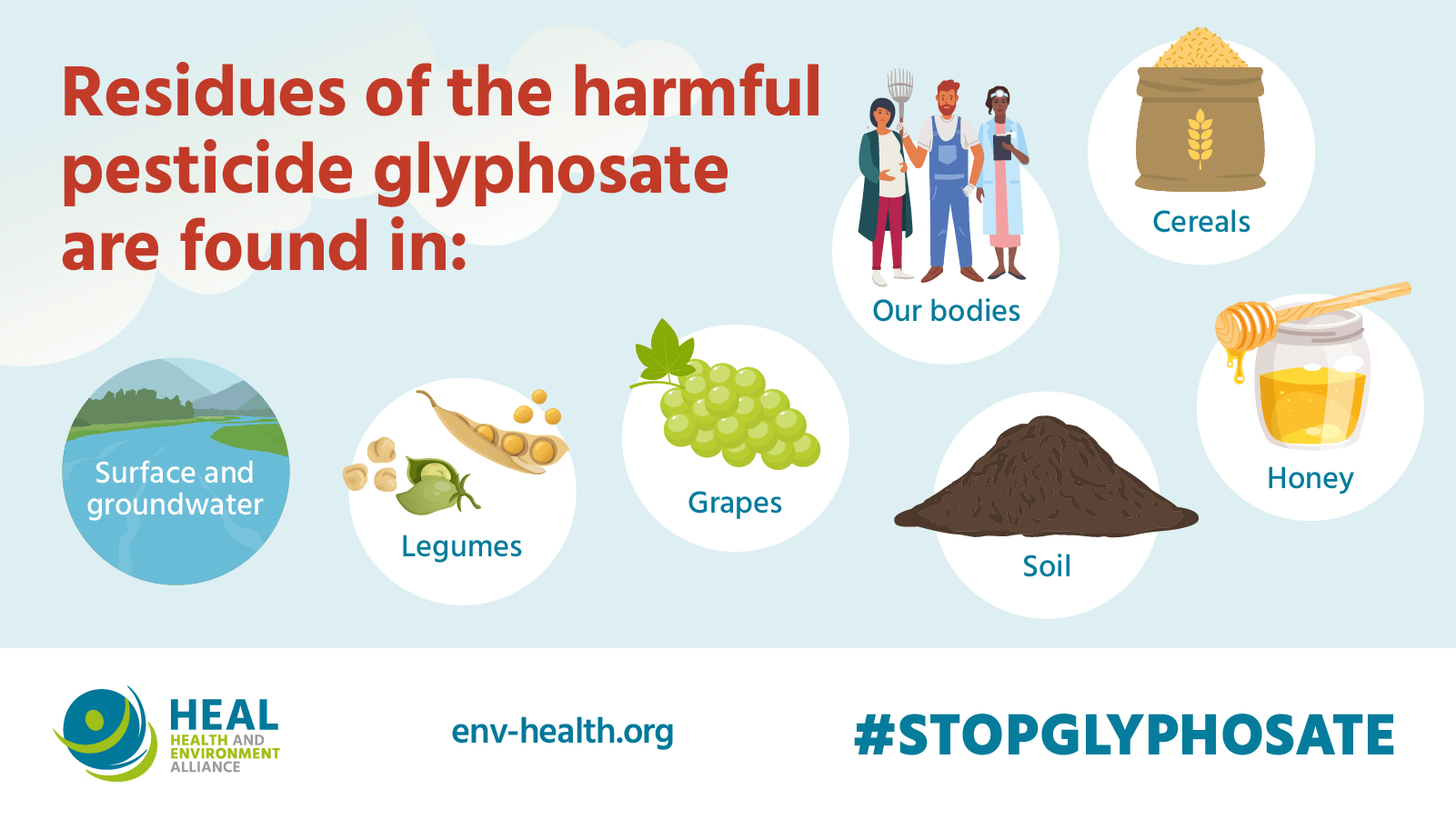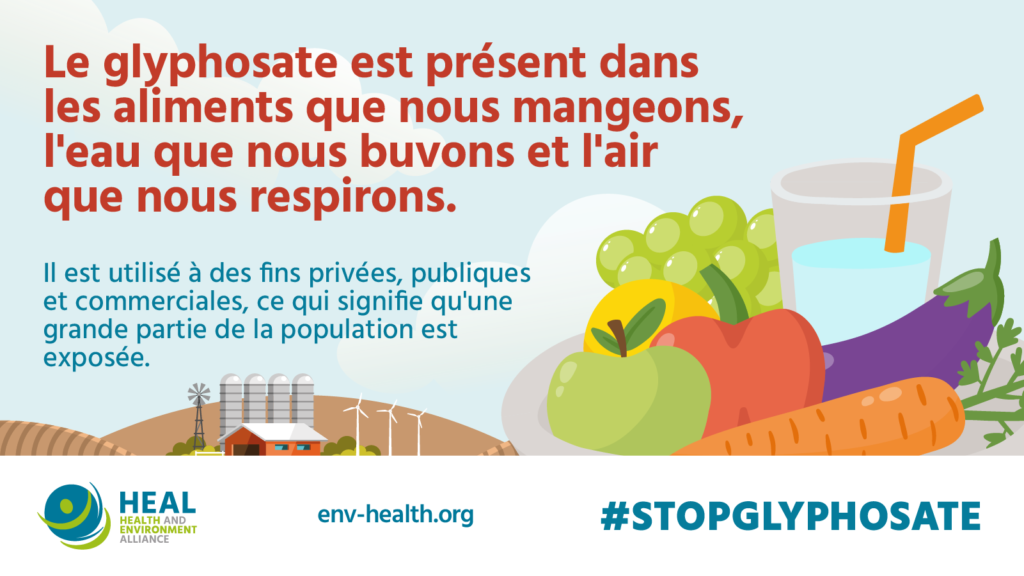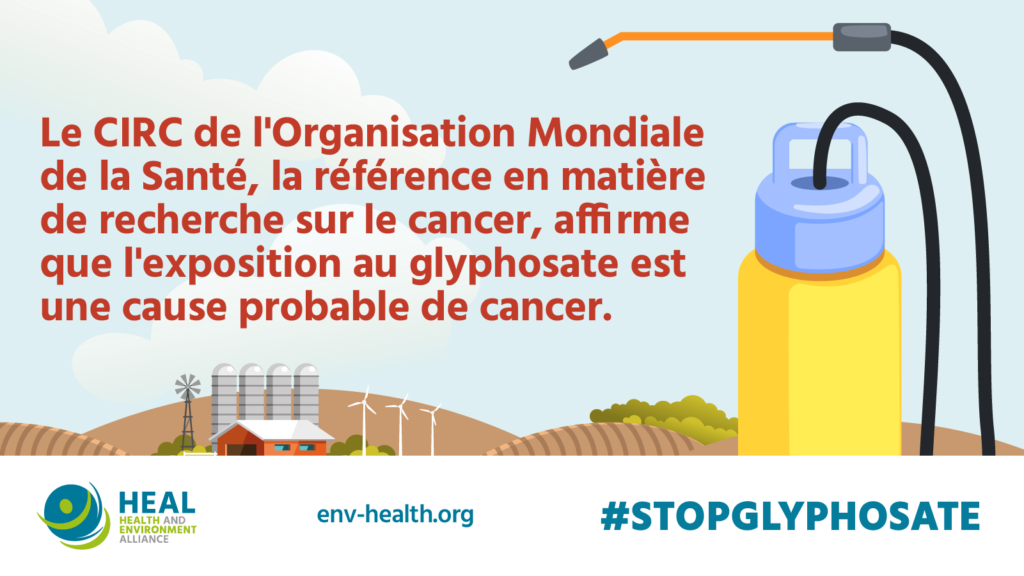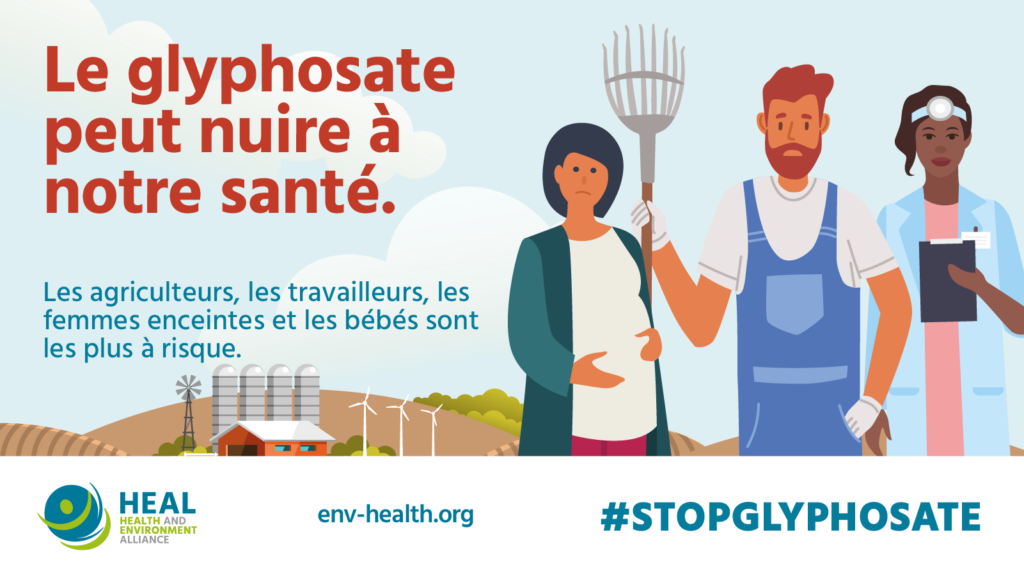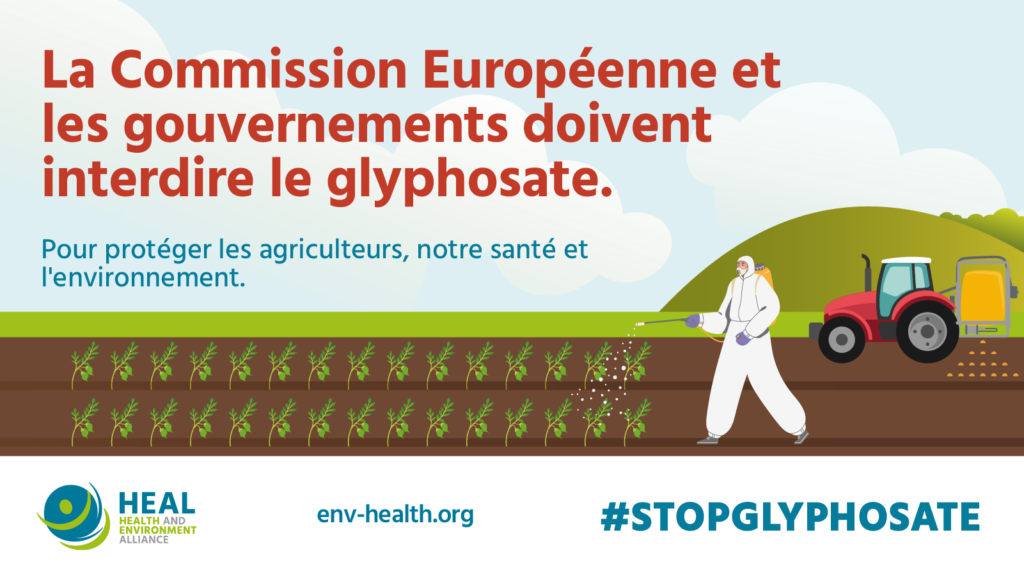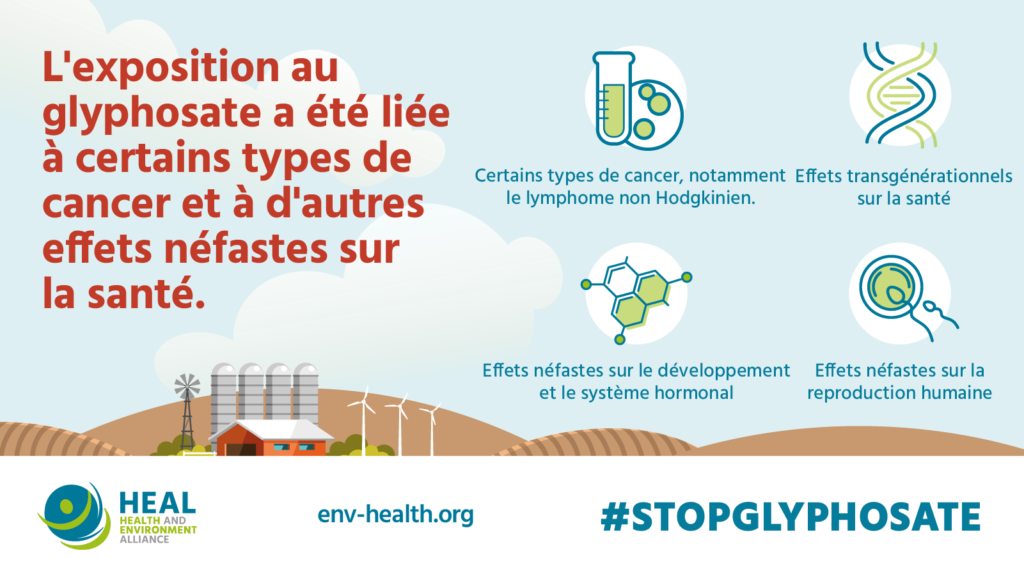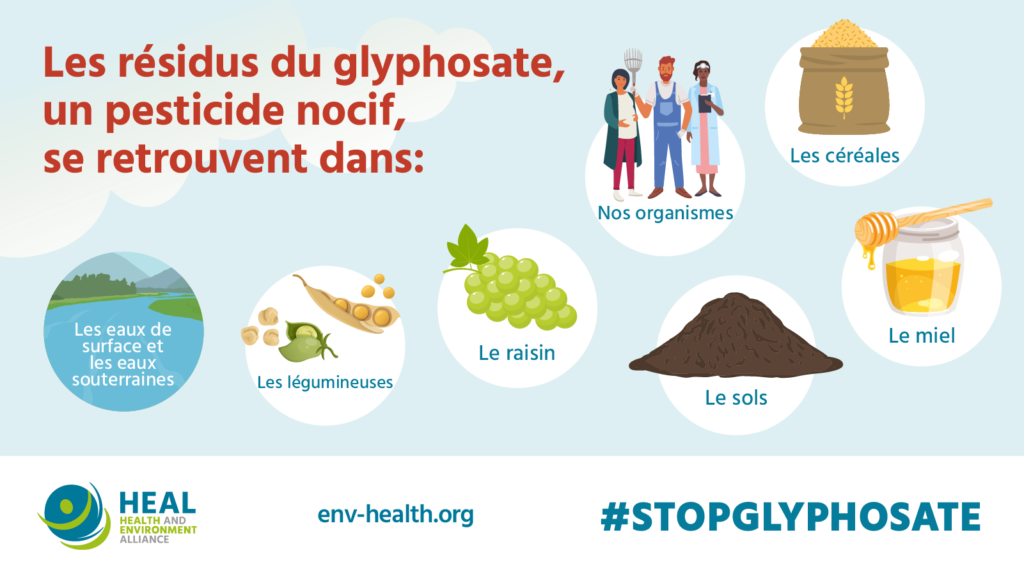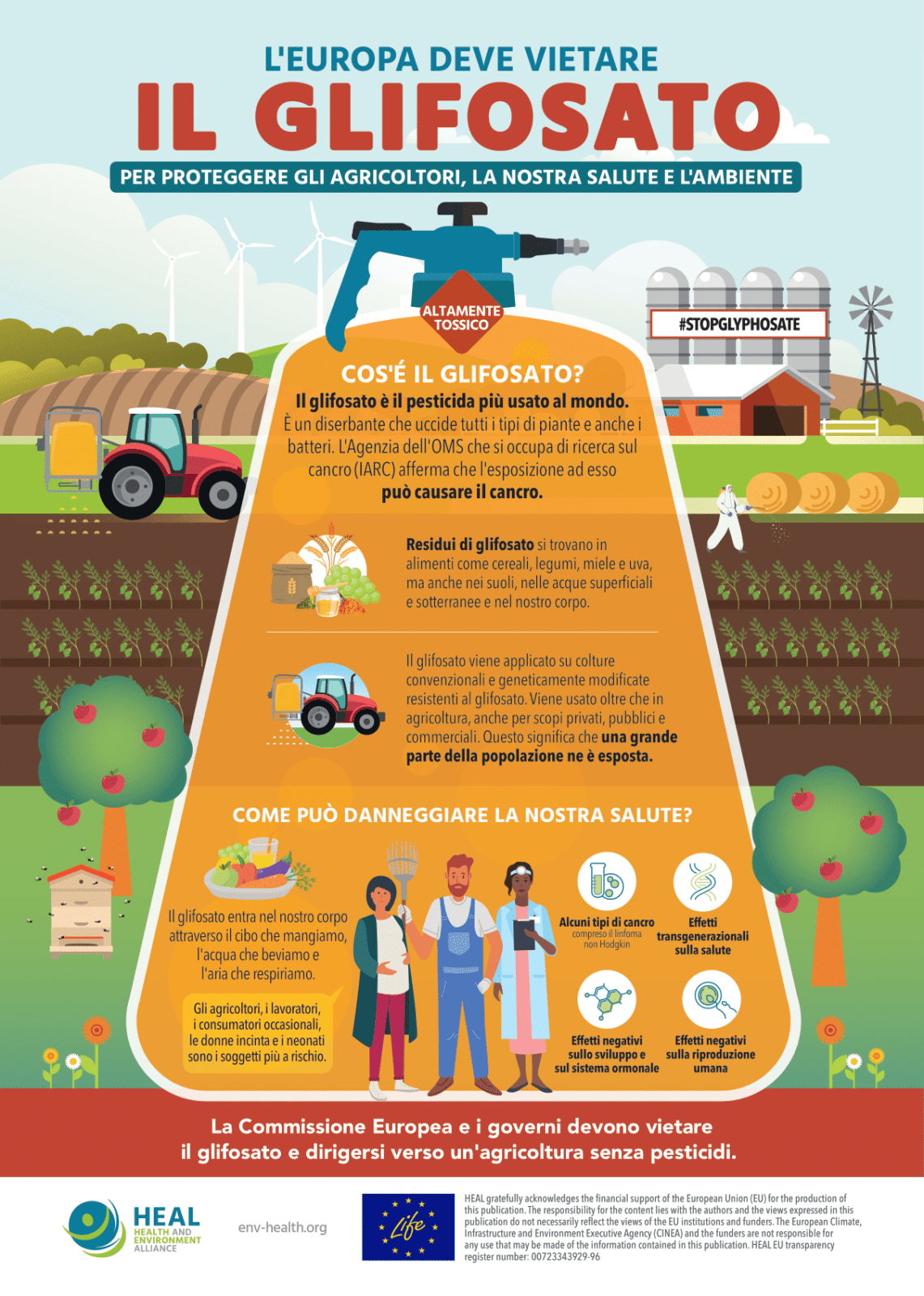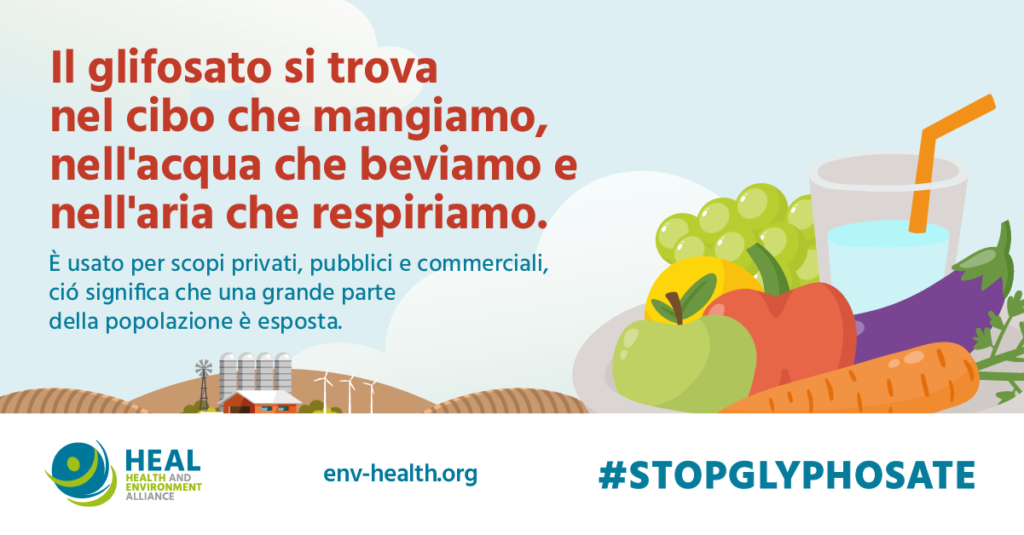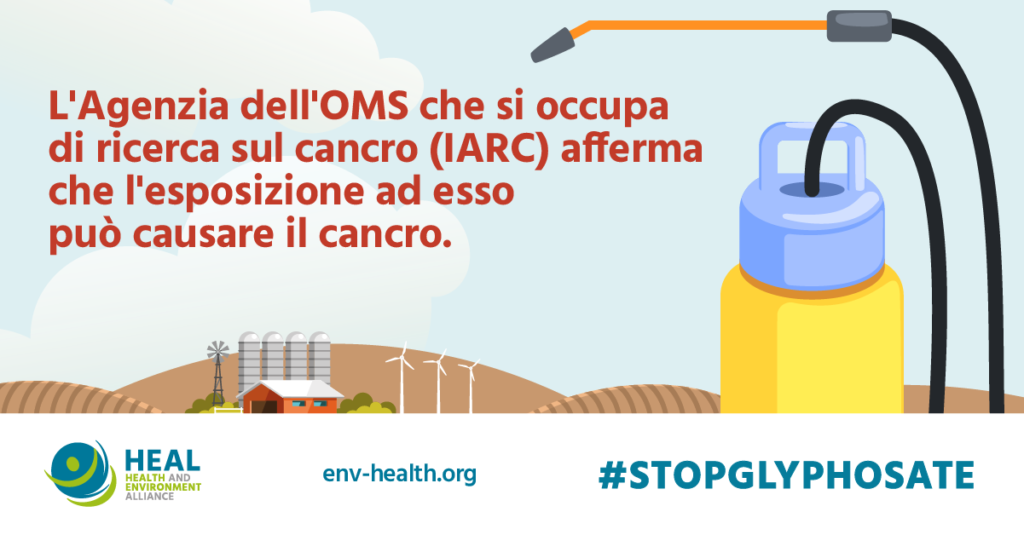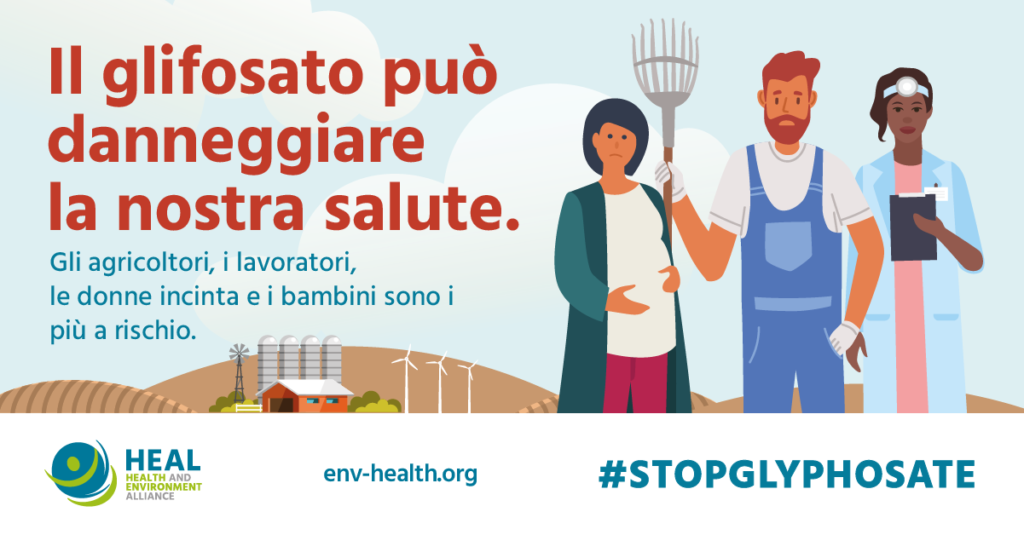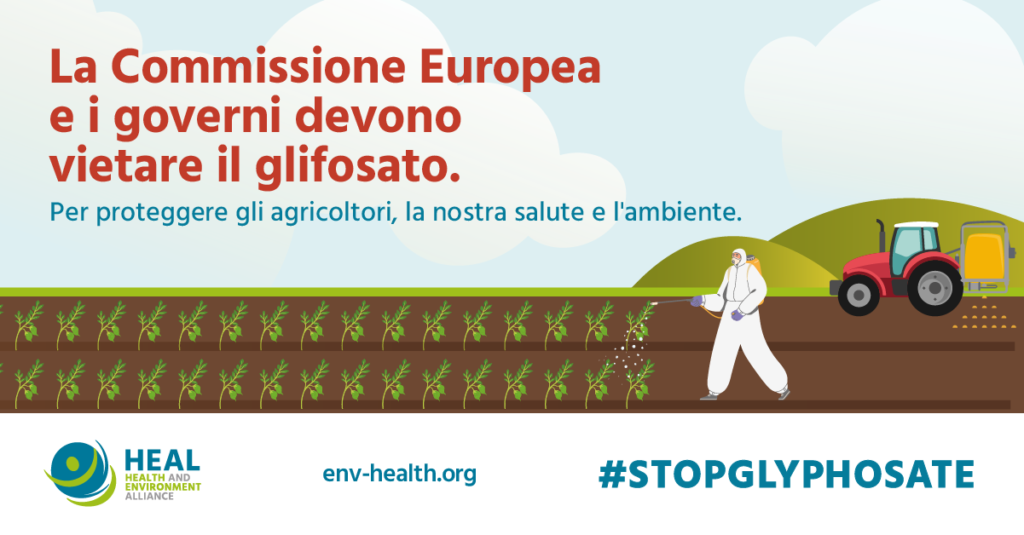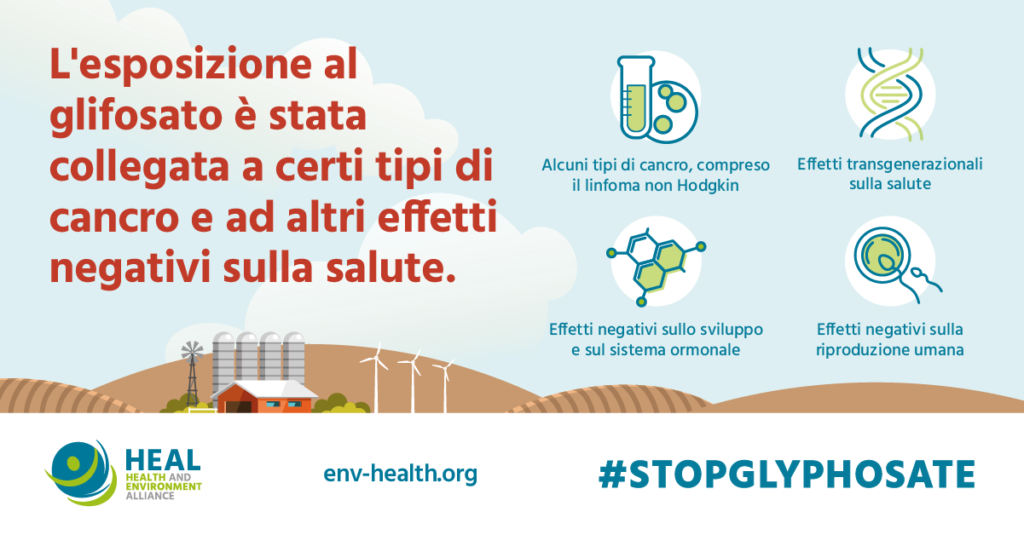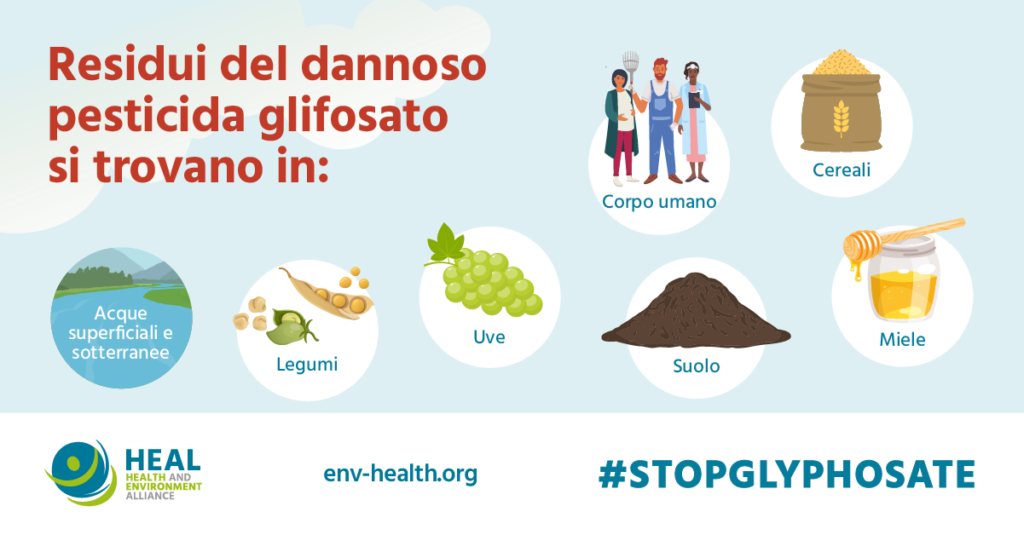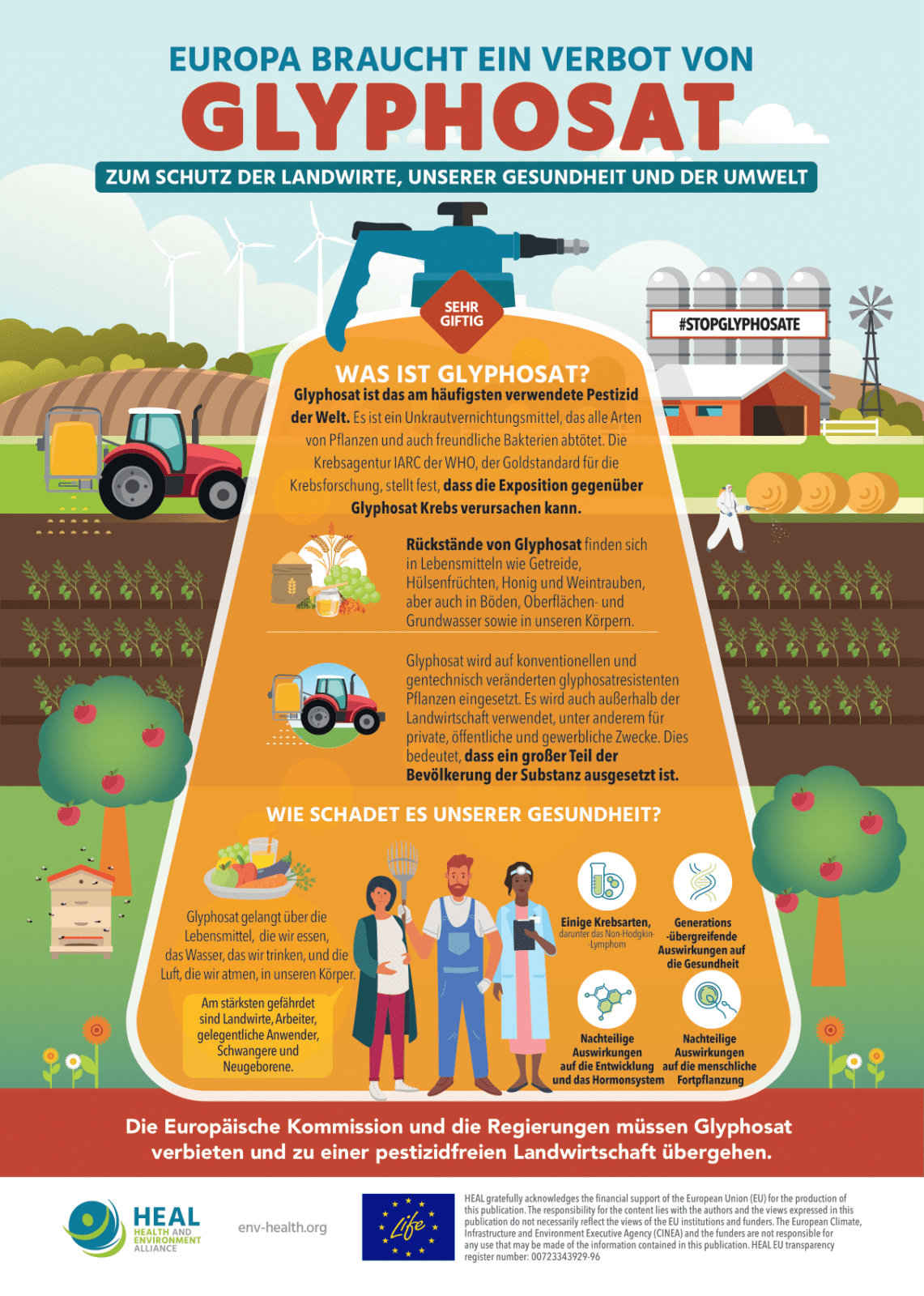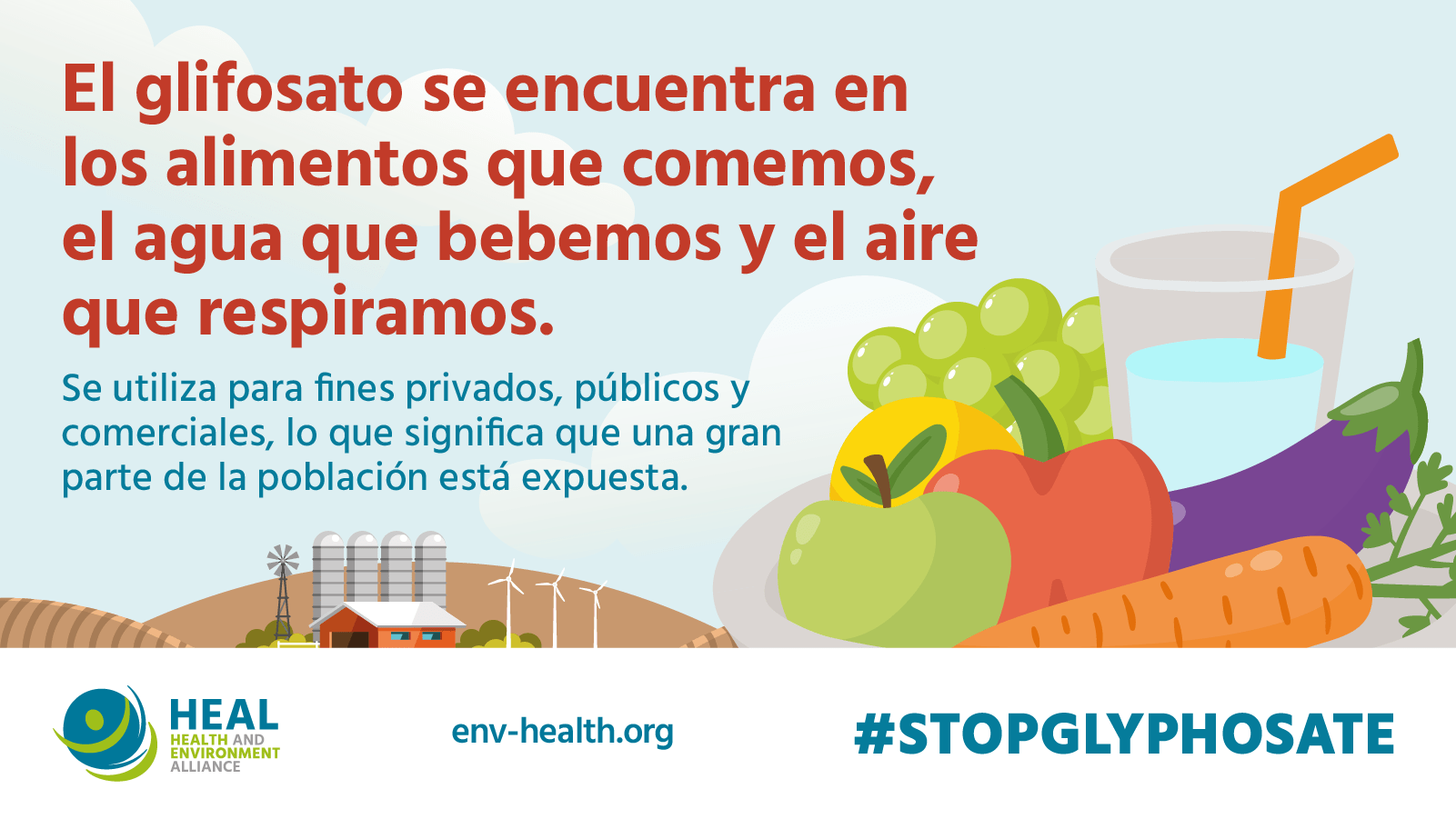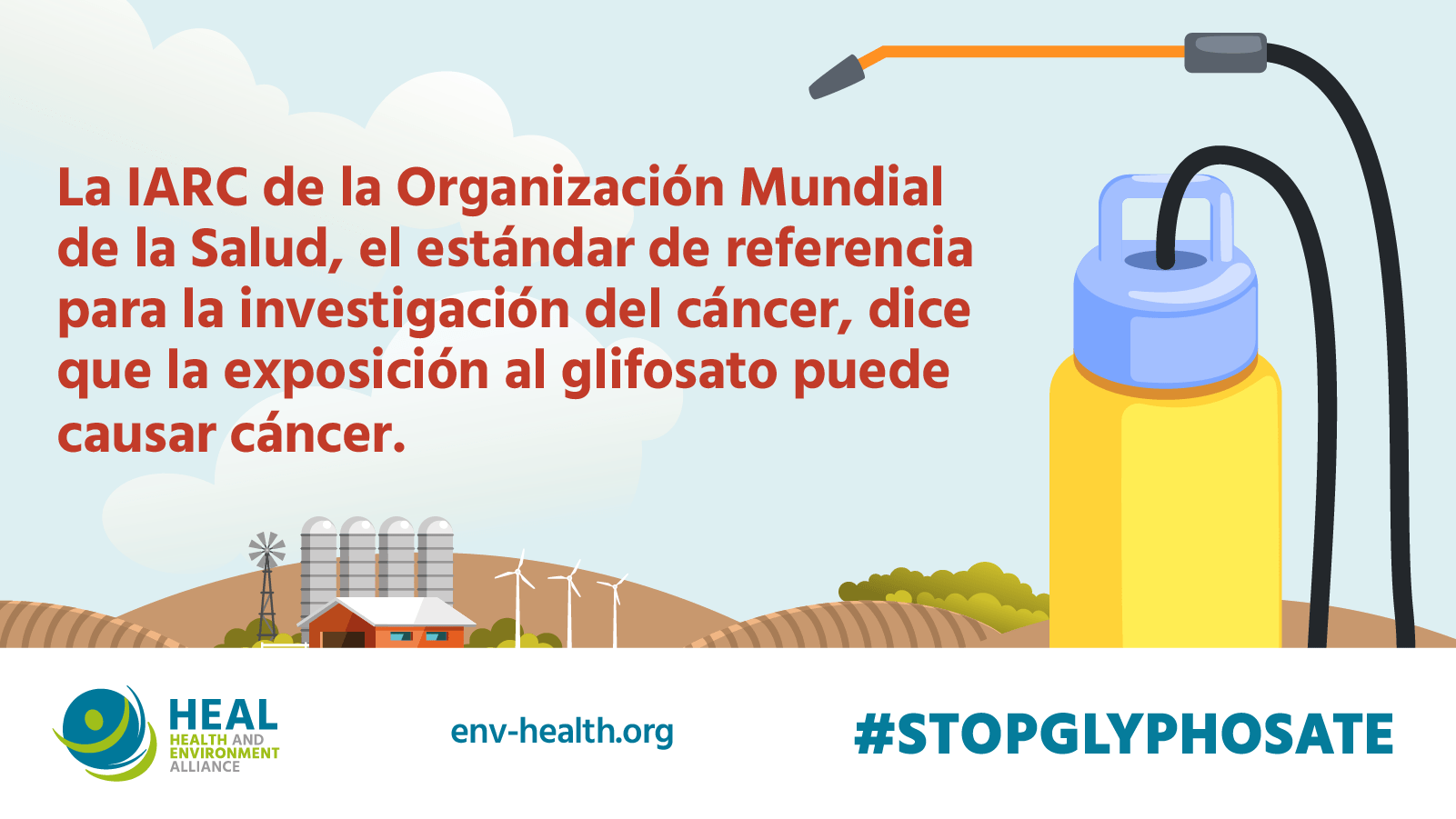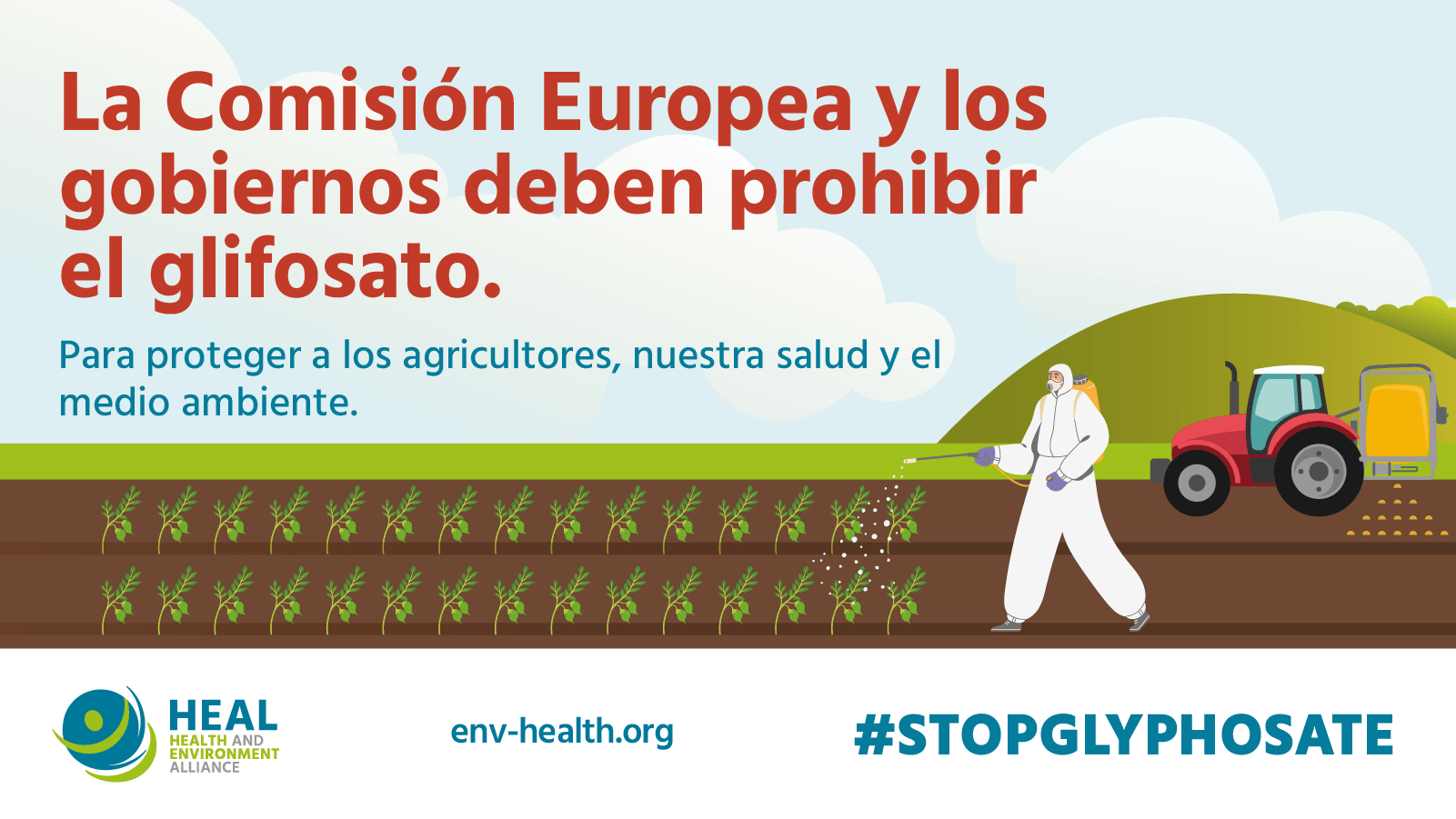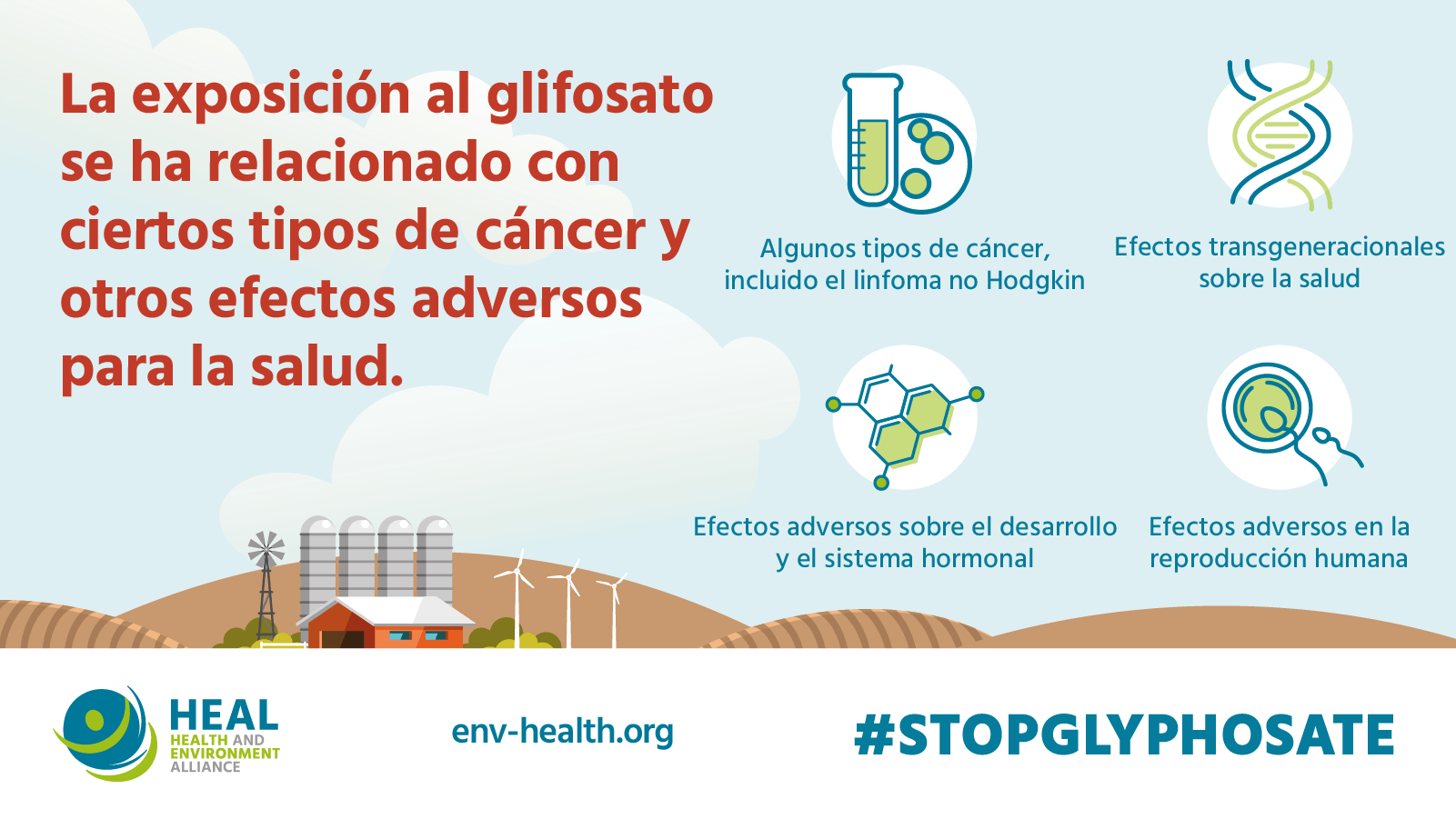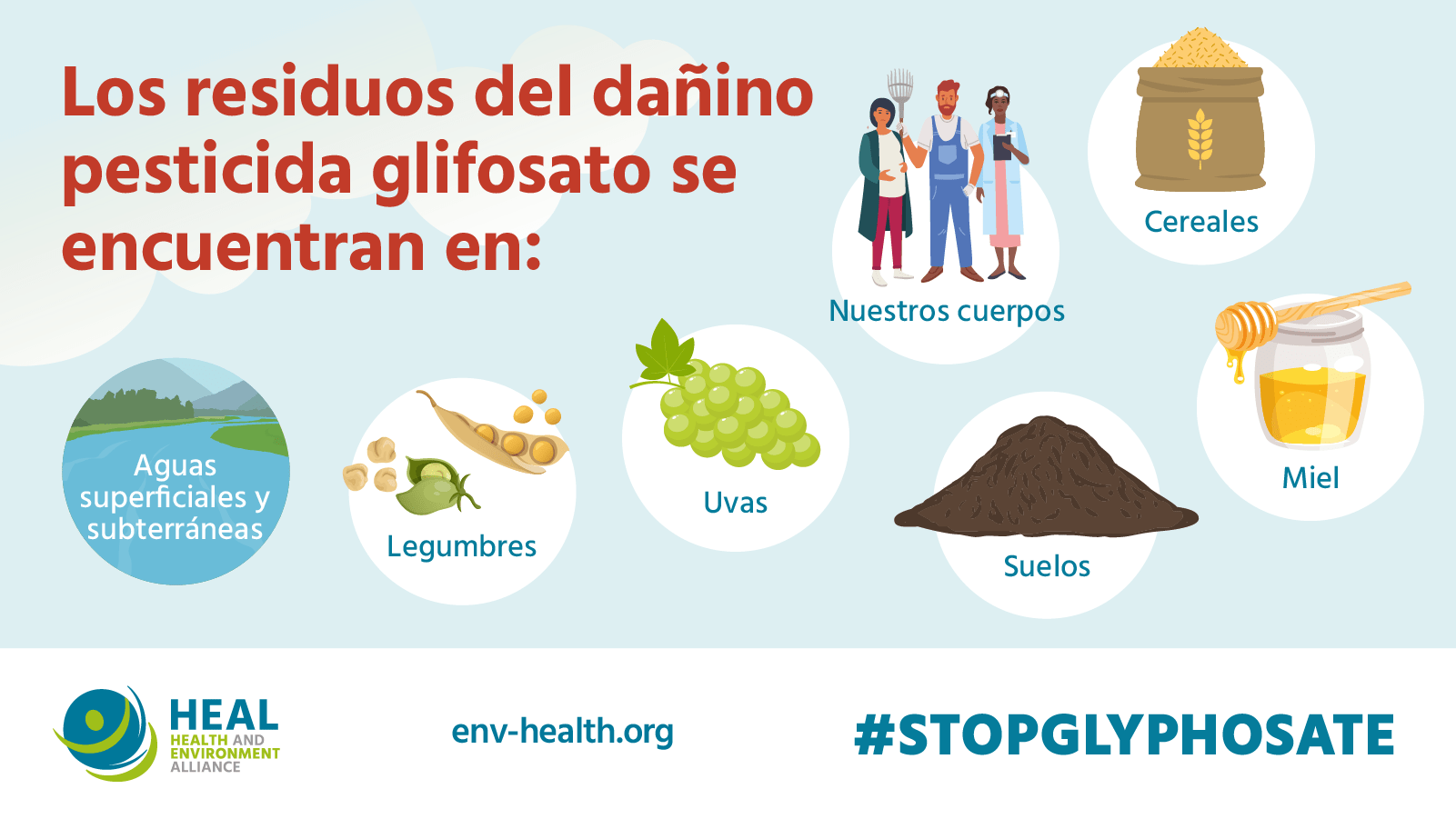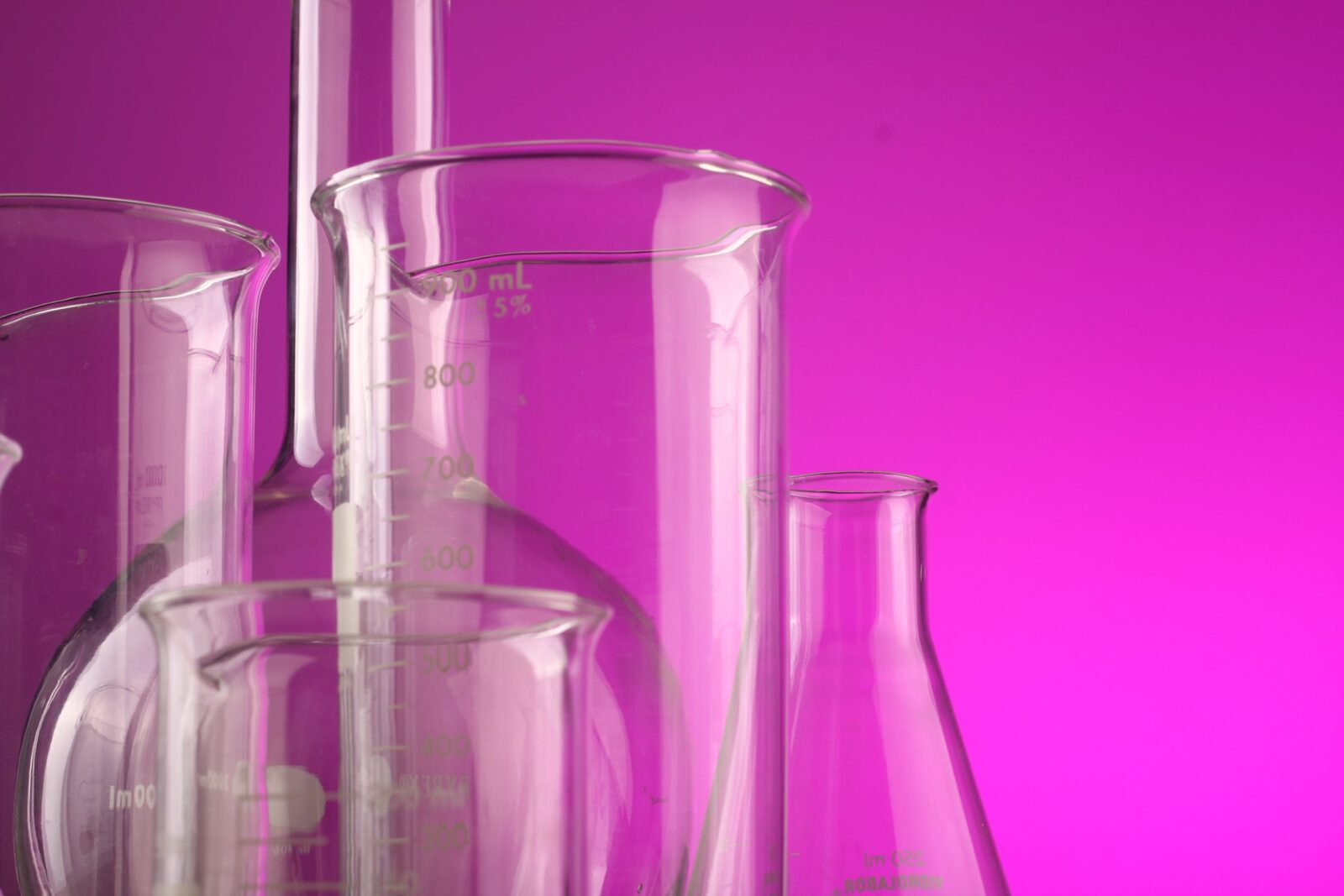The REACH legislation sets out how the European Union registers, evaluates, authorises and restricts chemicals. The sorely needed overhaul of this juggernaut of EU chemicals legislation is an opportunity to strengthen its effectiveness in protecting our health and the environment through better and earlier identification of hazardous chemicals.
A new infographic and social media assets launched by the Health and Environment Alliance (HEAL) today illustrate why the European Commission and governments must ban the harmful pesticide glyphosate to protect farmers, our health and the environment [1].
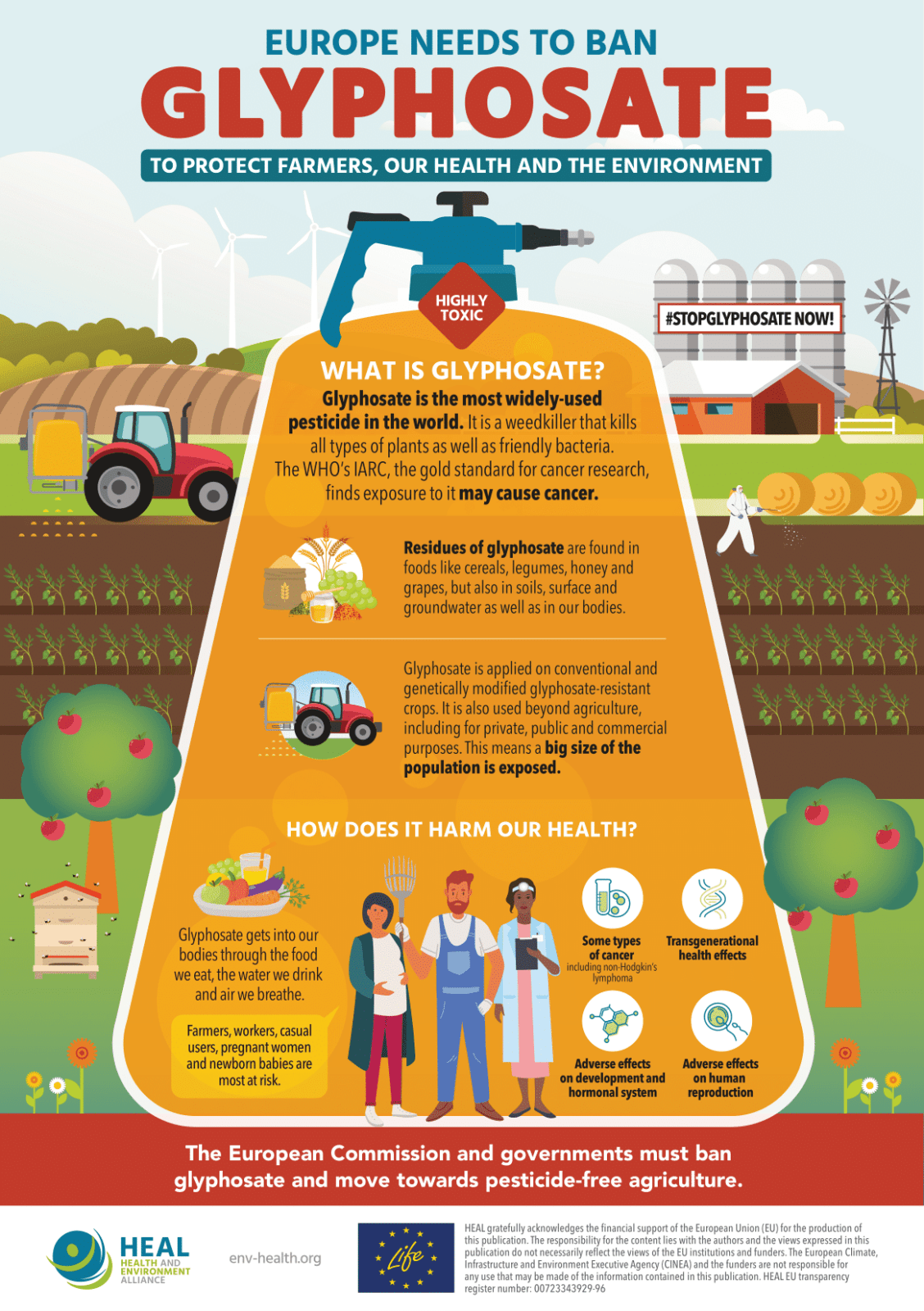
Available for download as PDF or PNG
Glyphosate is the most widely used pesticide in the world, which is of concern since its negative impacts on human health and the environment are well-documented. The World Health Organization’s International Agency for Research on Cancer (IARC), the gold standard for cancer research, finds exposure to glyphosate may cause cancer. Exposure to glyphosate-based pesticides has also been linked to adverse effects on human development, reproduction and hormonal systems, according to evidence from the independent scientific literature.
And yet, the European Commission and Member States have started the process to renew the pesticide’s market approval, which is expiring in December 2022, for 15 years. HEAL and its members have previously expressed specific concerns about the preliminary conclusions by four EU Member States that the substance has no harmful effects on health or the environment and the poor evaluation of all the available scientific evidence [2].
The ball is now in the court of the European Chemicals Agency (ECHA) and the European Food Safety Authority (EFSA), who will respectively carry out the hazard and risk assessments. Discussions at the former start today at ECHA [3]. Both agencies must carry out an objective and independent analysis of all available evidence, and adequately account for published scientific literature in addition to industry studies. This is of great importance, because their recommendations will greatly impact the proposal that the European Commission will formulate to either reject or give the green light to the renewal of glyphosate’s licence for use in Europe.
Together with our members, HEAL will continue to advocate on the public health benefits of banning glyphosate and other harmful pesticides across Europe. We will continue to stand with affected farmers, workers, their families and residents suffering from health problems as a result of glyphosate exposure. For an overview of our work, visit our campaign page.
Download our social media assets:

